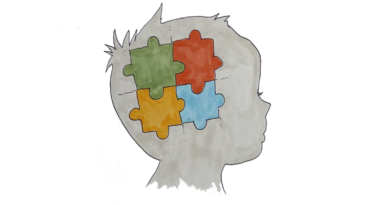Breastfeeding in the E-age
Twenty years ago, cell phones were rare and the Internet was in its infancy. Today, almost everyone has a smart phone for talking with friends, taking photographs of the children, and sending e-mail and SMS messages. We use our phones to determine where we are and where we want to go, update web and Facebook pages, keep track of friends’ updates to their own pages, and surf the Internet. And we do all this from the living room couch, a table in a café, the supermarket, or the playground.
Cell phones and tablet computers have become so ubiquitous that even primary schools have to ban their use during school hours. There is a lot of information (and mis-information) on the Internet that can be called down to the fingertips. There are even several excellent sites for breastfeeding women online – www.lalecheleague.ch and www.mamamap.ch to name two – and the use of such resources is tempting, but they can, and probably should, be eschewed when it comes to breastfeeding, especially in the early months.
In the beginning weeks, mothering can seem like a daunting task, especially when you find yourself home alone with your baby for the first time. There are plenty of e-mail and SMS messages waiting to be answered; the wash needs to be done, and the house is a mess. Furthermore, while your baby is well fed with your breastmilk, you need to make sure that you drink enough, eat a nutritious diet, and get enough rest, so that you have the energy you need to care for Baby. Accept all offers of help, ask for help where you can, learn to overlook a bit of mess in the house and hire a cleaning woman if possible. Leave the e-mail, unplug the telephone, and spend your time concentrating upon the important tasks of breastfeeding and bonding with your baby. The housework and other tasks will wait, but your baby cannot, and you must be there for him or her, so be sure also to make mothering yourself a main priority each day.
The mother of a newborn baby tends not to have time to prepare meals, but she will most likely need to eat almost as often as her baby does (babies need to eat approximately every two to three hours, at irregular intervals, day and night). It is a good idea to keep such healthy snacks as fresh fruits and vegetables, cheeses, and bread or crackers on hand. When there is time to cook, cook in large quantities so that there will be leftovers for the next few days, and get some casseroles into the freezer if you have one. Getting enough to drink can be ensured by keeping a large glass of water in a readily accessible place, for example in a peaceful breastfeeding corner containing a comfortable chair, a table for the glass of water and a bowl of fruit, and a good book within easy reach.
Just as important as feeding yourself well, especially in the early days, is to get enough rest. Although the temptation to answer just a few e-mails or to do just a bit of housework while Baby sleeps will be hard to resist, a newborn baby has not yet learnt that nighttime is for sleeping; you should take the time to catch up on missed sleep during the day when the baby is napping. It is an excellent idea to pack Baby into a sling or ergo-carrier for a short walk together in the fresh air once or twice a day, but in general the day should be spent relaxing and sleeping as much as possible.
It might take some practice at first to reassign priorities in this way, but luckily nature has anticipated this difficulty and has sent us breastfeeding hormones to smooth the path. The two hormones prolactin (released in response to suckling on the breast, promotes milk production) and oxytocin (released through physical contact, triggers nurturing behavior) are thought to be responsible for the feelings of peace and relaxation that mothers come to associate with breastfeeding. And these peaceful feelings may just be sufficient cause for you to settle back and close your eyes for a rest when Baby falls asleep on the breast, instead of jumping up to do the many tasks (e-tasks and otherwise) that are calling.
By Bethany Brupbacher




